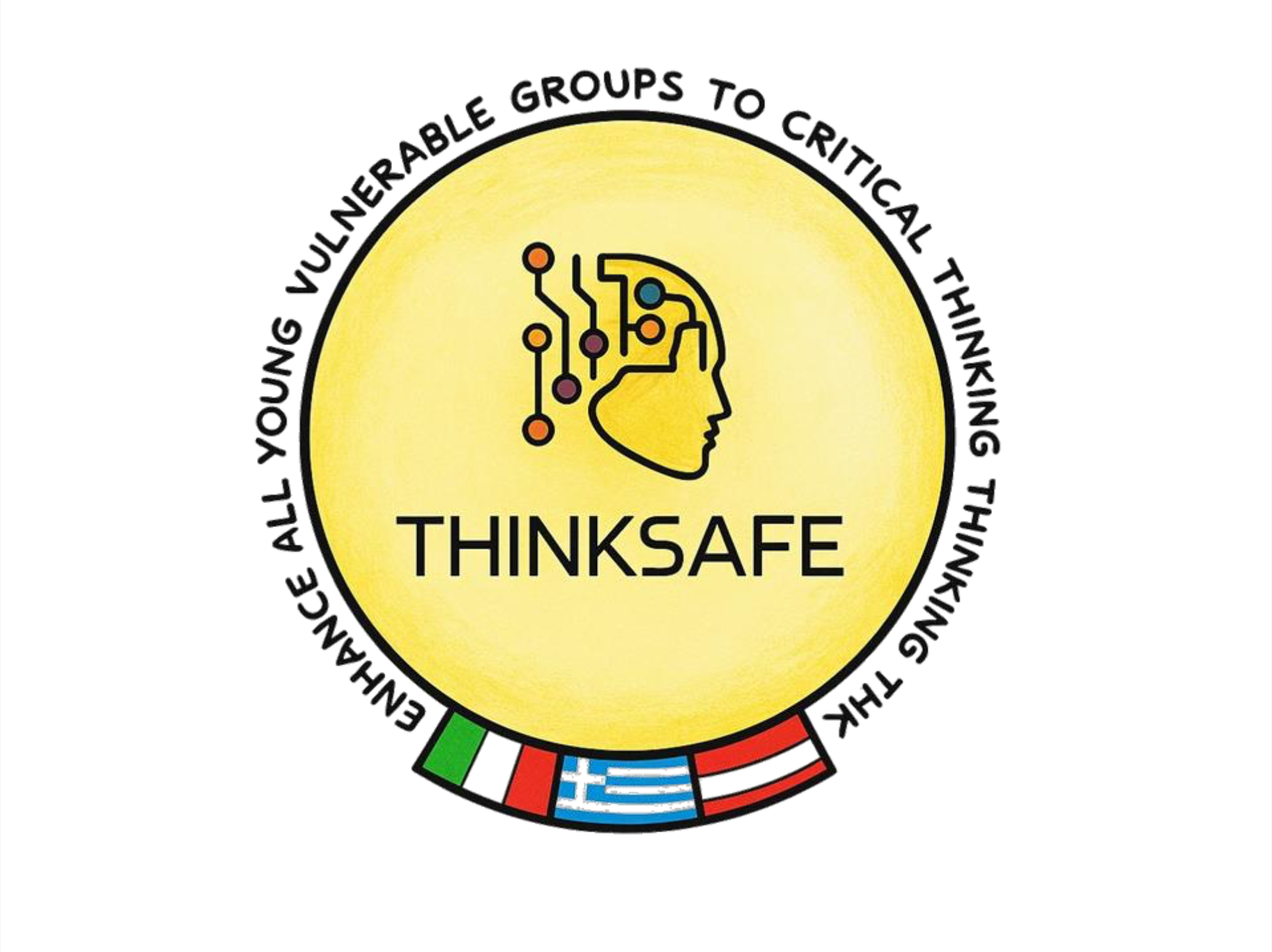ThinkSafe Project Newsletter #1
Empowering Students with Disabilities for a Safer Digital Future
At the first project meeting, we had the opportunity to get to know each other better than at online meetings. For two days, we worked diligently on the development of the project and its promotion. Over the next few months, we have tasks to do and we will be looking forward to the next meeting, this time in Athens!
The Project
The ThinkSafe project, officially titled “Enhance All Young Vulnerable Groups to Critical Thinking” (acronym: THINKSAFE), is an Erasmus+ KA220-SCH Cooperation Partnership in school education. Launched on September 1, 2023, and running until August 31, 2025, ThinkSafe aims to empower students with disabilities by equipping them with essential digital skills to identify and distinguish misinformation and disinformation, protect themselves from online risks, and make informed decisions in the digital world.
This initiative directly responds to the growing challenges faced by young people with disabilities in an increasingly digital society—where the ability to critically evaluate online information and navigate digital spaces safely is vital. ThinkSafe is committed to promoting critical thinking, digital literacy, and online safety, fostering a safe and inclusive learning environment for all students.
Target Groups
ThinkSafe is designed with a strong focus on inclusion and diversity, targeting:
- Primary and lower-secondary school students with disabilities (aged 12–18)
- Educators, teachers, and caregivers working with students with disabilities in mainstream and special schools
- NGOs, volunteers, and support staff involved in disability education and digital inclusion
- Indirectly: local and regional authorities, volunteer organizations, and associate partners interested in digital literacy and inclusion.
By involving a broad spectrum of stakeholders, the project aims to create a multiplier effect, ensuring that knowledge, skills, and resources reach a wide audience across Europe.
Objectives
The ThinkSafe project is guided by clear, actionable objectives:
- Equip students with disabilities with digital critical skills to identify and distinguish between fact and fiction online (combating misinformation and disinformation)
- Provide strategies for online safety, enabling students to protect themselves from cyberbullying, scams, and inappropriate content
- Foster critical thinking and independent decision-making when consuming digital information
- Promote responsible online behavior and awareness of digital risks
- Bridge the digital divide by enhancing digital skills and competencies among students with disabilities
- Create a safe, inclusive online learning environment that supports positive social interactions and respect for diversity.
These objectives align with key Erasmus+ priorities: digital transformation, tackling learning disadvantages, and promoting inclusion and diversity in education.
Project Results
ThinkSafe’s action plan is structured around five work packages, each delivering concrete results:
- Project Management: Ensures smooth coordination, financial oversight, and quality assurance across all activities.
- Content Collection & Training Material Development: Development of comprehensive training materials and Digital Stories Practice modules tailored to the needs of students with disabilities, focusing on critical digital skills and online safety.
- Exchange & e-Learn Platform Development: Creation of accessible, multilingual online platforms for learning and exchange, including an e-learning platform and an online community for students, educators, and caregivers.
- Training Activities: Delivery of training sessions for educators and students, including pilot testing and co-design workshops to ensure materials are relevant and effective.
- Communication, Dissemination & Exploitation: Promotion of project outcomes through newsletters, events, social media, and collaboration with local and European stakeholders to maximize impact and sustainability.
Expected Impact:
By the end of the project, at least 100 students with disabilities and 45 educators/caregivers in each partner country will have participated in the training and platforms. The project aims to reach over 2,000 website visitors and involve more than 100 external institutions, ensuring sustainability and wide adoption of its results beyond the project’s lifetime.
Stay tuned for updates on our progress, upcoming training opportunities, and ways to get involved. Together, we are building a safer, more inclusive digital future for all!




